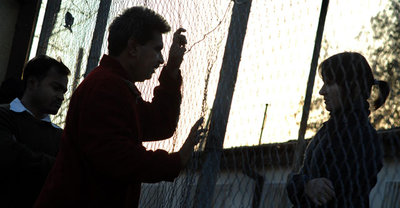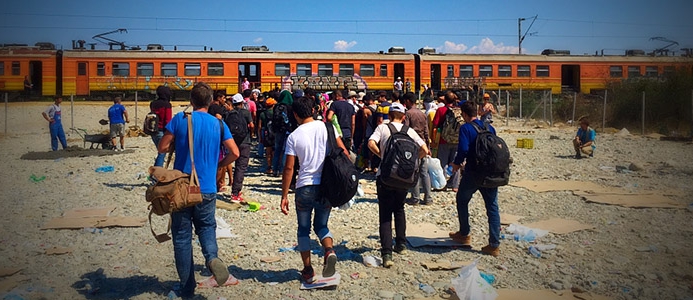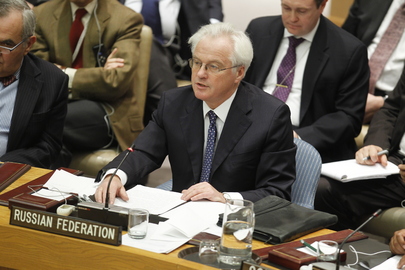Syrian refugees. UNHCR condemns abuses and calls for a moratorium on deportations

(BRUSSELS2) The establishment of a barbed wire wall is of great concern to the United Nations High Commissioner for Refugees (UNHCR). The latter expressed very officially on Friday his " deep concern after receiving reports of some EU countries placing barriers to entry or implementing forced return measures for asylum seekers, including those who fled the conflict in Syria. “UNHCR calls on all countries around the world as well as the European Union to shift away from protecting borders in favor of protecting people “Says his spokesperson, Adrian Edwards. " UNHCR calls on States to immediately put an end to practices or procedures aimed at preventing asylum seekers from accessing territories. Forced returns and entry bans may place asylum seekers in the face of new threats and expose them to additional trauma ", he added.
Refugees returned, imprisoned...
It is in Bulgaria where the concern of the international organization is the strongest. According to the press, the Bulgaria turned back 100 migrants at the border over the weekend and deployed around 1 police to the border region. And he's building a barbed wire wall along the border. " Placing barriers, such as fences and other deterrents, could push people into even more perilous attempts to cross borders and refugees into the hands and mercy of smugglers “said Adrian Edwards.
UNHCR is also concerned about similar reports of asylum seekers being turned away since the Greece to Turkey. He asked the Greek authorities to carry out an investigation into the fate of 150 Syrian refugees, including many families with children, who were allegedly refused entry to Evros on November 12. AT Cyprus, UNHCR has received information from Syrians who arrived illegally by boat in the north of the country and who were deported to Turkey after a brief period in detention. In the south of the country, Syrians are encountering more and more difficulties with regard to reception and assistance.
NB: The Commission refutes. questioned Thursday, by our care, the European Commission affirmed not to be aware of such practices of expulsion or detention by the Bulgarian authorities. It is in this country that the greatest concerns are concentrated. The government is preparing a particularly restrictive law on asylum and refugees: obligation to provide bail with a commitment not to violate public order, obligation to appear regularly, every two weeks, before the authorities, no change residency without permission, and the establishment of "closed" detention centers for immigrants who could " threaten national security ". All provisions that do not seem really in line with European and international regulations, in our opinion.
A moratorium on forced return
UNHCR calls for implementation of a general moratorium so that there is no longer any forced return of Syrians to countries neighboring Syria”. This would represent a concrete gesture of solidarity towards these countries which currently host more than 2,2 million refugees. EU states with external borders cannot be neglected (and) bear the full burden of this influx. Responsibility sharing in the EU must be demonstrated through greater intra-EU mobility and openness “underlines the organization.
A little more solidarity between European countries
The UNHCR thus recommends mechanisms for a fair distribution within the EU of people recognized as refugees or beneficiaries of temporary protection ". He calls for the creation of a "transit center for evacuees" with " resettlement efforts (which) could be carried out both from European and non-European countries”. Finally, it calls for the application of all the criteria set by the "Dublin" regulation, in particular those " relating to family reunification".
To be continued on The Club : the three options under consideration in the face of the Italian request for a CSDP operation in the Mediterranean




Comments closed.